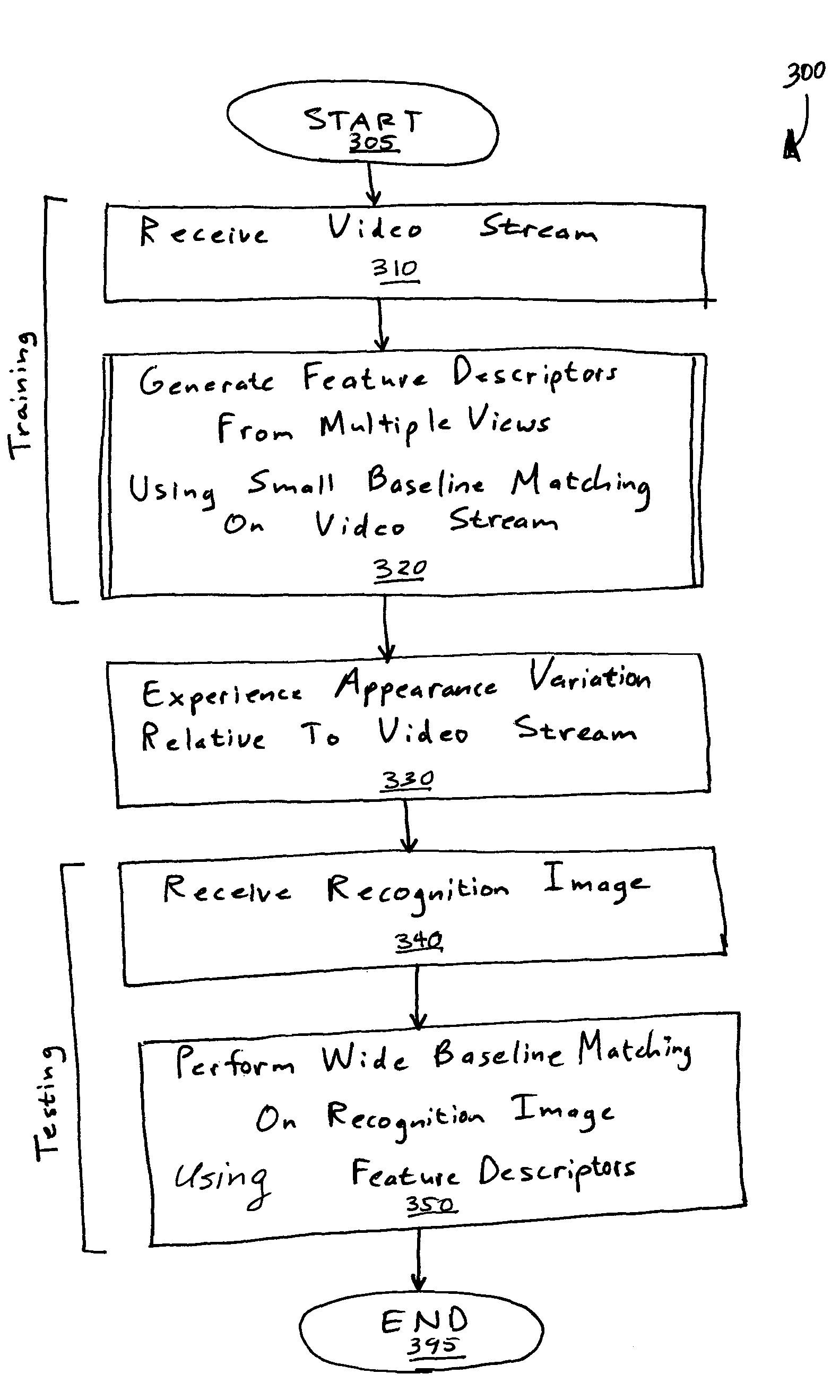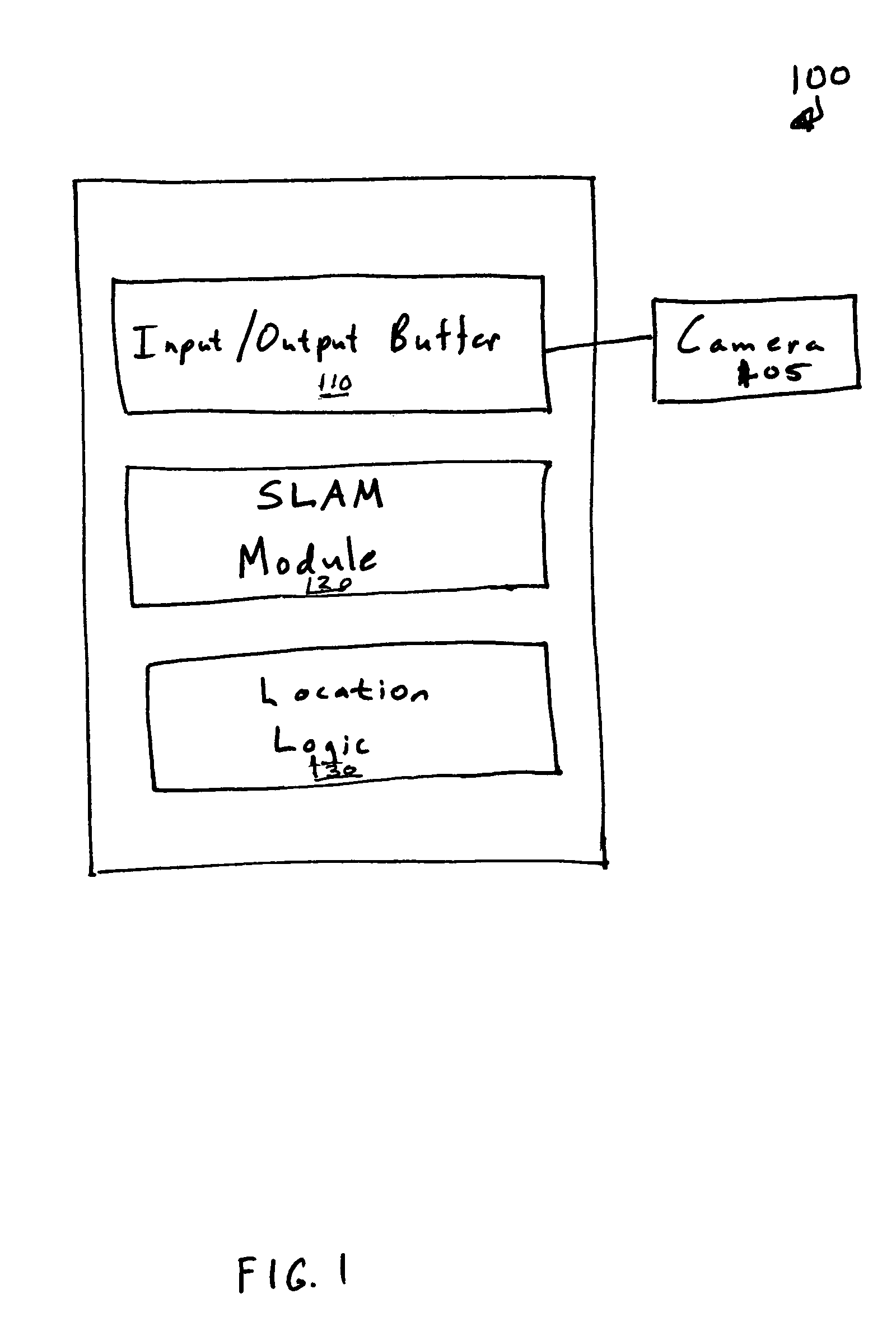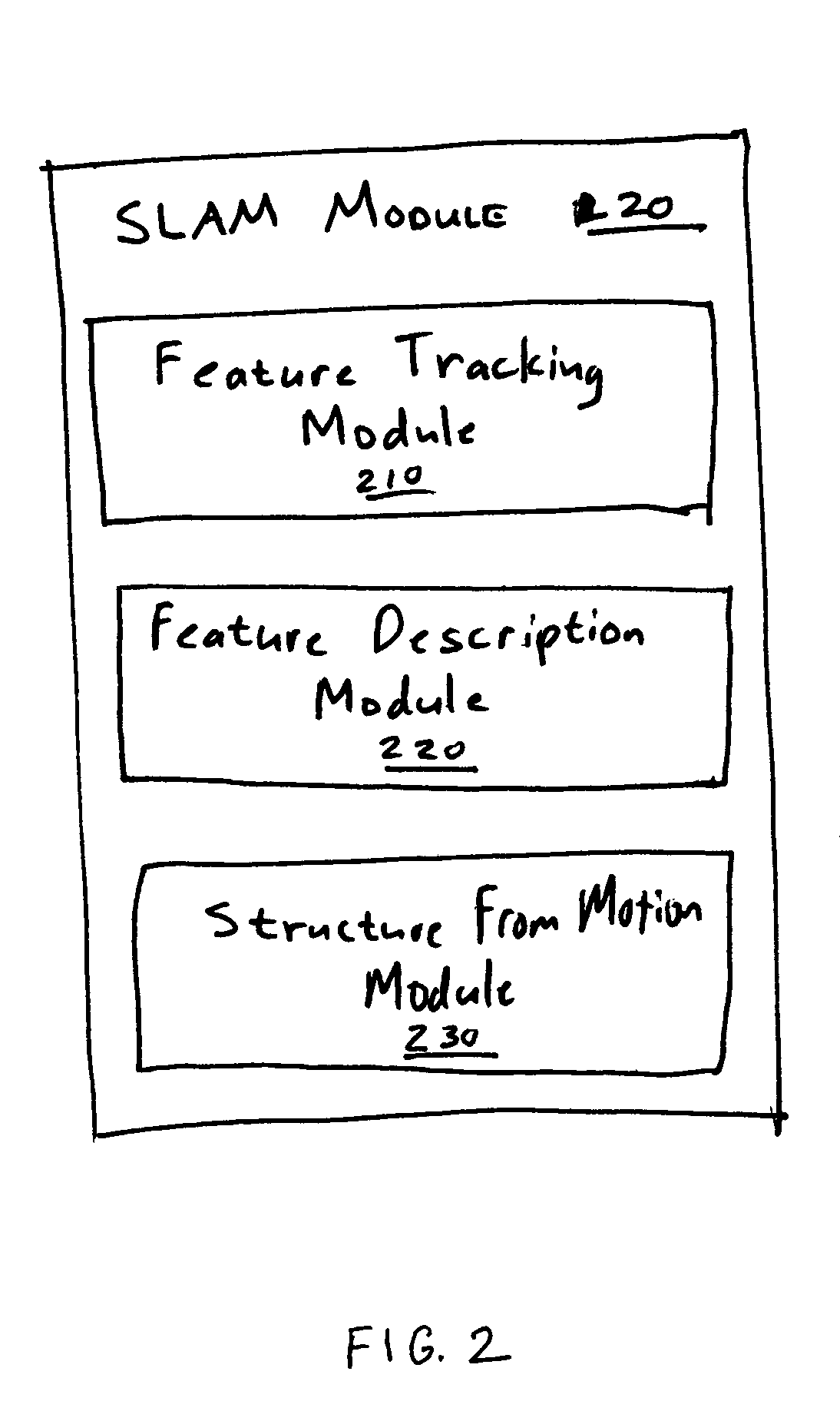Simultaneous localization and mapping using multiple view feature descriptors
a feature descriptor and simultaneous localization technology, applied in the field of image processing, can solve the problems of no longer providing accurate localization, difficulty in recognizing the same scene, and only valid measurement through uninterrupted travel, and achieve the effect of efficiently building the necessary feature descriptors
- Summary
- Abstract
- Description
- Claims
- Application Information
AI Technical Summary
Benefits of technology
Problems solved by technology
Method used
Image
Examples
Embodiment Construction
[0020]Systems, methods and computer products for simultaneous localization and mapping (SLAM) using multiple view feature descriptors are disclosed. Some embodiments of the system are set forth in FIGS. 1-2, and some embodiments of the method operating therein are set forth in FIGS. 3-5. The accompanying description is for the purpose of providing a thorough explanation with numerous specific details. Of course, the fields of image processing and SLAM are such that many different variations of the illustrated and described features of the invention are possible. Those skilled in the art will thus undoubtedly appreciate that the invention can be practiced without some specific details described below, and indeed will see that many other variations and embodiments of the invention can be practiced while still satisfying its teachings and spirit. Accordingly, the present invention should not be understood as being limited to the specific implementations described below, but only by the...
PUM
 Login to View More
Login to View More Abstract
Description
Claims
Application Information
 Login to View More
Login to View More - R&D
- Intellectual Property
- Life Sciences
- Materials
- Tech Scout
- Unparalleled Data Quality
- Higher Quality Content
- 60% Fewer Hallucinations
Browse by: Latest US Patents, China's latest patents, Technical Efficacy Thesaurus, Application Domain, Technology Topic, Popular Technical Reports.
© 2025 PatSnap. All rights reserved.Legal|Privacy policy|Modern Slavery Act Transparency Statement|Sitemap|About US| Contact US: help@patsnap.com



